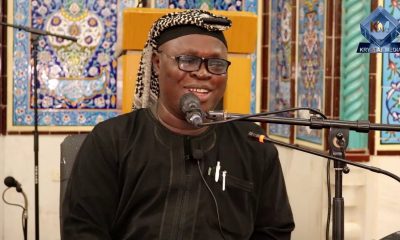News
Constitution review: Lagos participants call for true federalism

Participants at the ongoing Lagos zonal public hearing on the 1999 constitution review have called for a total amendment of the constitution to reflect true federalism.
Topping the list of issues presented was the need for total devolution of powers whereby the local government system has the greater share and so is empowered to carry out effective administration of the polity since it is closest to the people.
Participants also called for creation of state police, re-inclusion of Magistrates in the constitution, review of the retirement age of Magistrates from 60 to 65.
There were also calls for a declaration to make the Higher National Diploma (HND) equivalent to the university degree; need to ensure gender equality, as well as revenue allocation.
The two-day public hearing, holding at the Lagos Marriott Hotel, Ikeja, started yesterday. It was attended by Governor Babajide Sanwo-Olu (host), Senator Oluremi Tinubu (Lagos Central and Chairman of Hearing Committee), Olamilekan Adeola (Lagos West), Tokunbo Abiru (Lagos East); Senators Ibikunle Amosun, Tolu Odebiyi (Ogun State); Senators Teslim Folarin and Abdulfatai Buhari (Oyo State), among others.
Governor Sanwo-Olu, who opened the event, noted that the constitutional amendment process would provide Nigerians the opportunity to express their minds on issues they want reflected in the constitution. ‘This is what true democracy is all about – the exercise of the sovereign will of the people. The voices and wishes of the people must always be heard loud and clear, regarding how they are being governed and how they wish to be governed,’ he said.
The governor, who also said it would be impossible to reflect every expressed wish in the revised constitution, urged the people adopt the spirit of give-and-take, ‘with a willingness to mutually compromise and avoid unnecessary tension and division along the way’.
He added: “For us in Lagos State, the issues of state police and fiscal federalism top the priority list for us. Equally fundamental is the issue of a special economic status for Lagos, considering our place in the national economy and the special burdens we bear by virtue of our large population and limited land mass. I believe the need for this special status has been sufficiently articulated and justified. It suffices for me at this point to restate that this request is by no means a selfish one, but one that is actually in the interest of every Nigerian and of Nigeria as a nation. The progress and prosperity of Nigeria is inextricably linked to the progress and prosperity of Lagos State. A special status for Lagos State therefore must be a concern not only for the people of Lagos State alone, but for all Nigerians.”
Deputy Speaker of the Lagos State House of Assembly Wasiu Eshinlokun Sanni, who represented the Speaker Mudashiru Obasa, also reiterated the need for Lagos to get a special status. He advocated 30 per cent derivation on natural resources for the domiciling states, as well as the criminalisation of undue interference in activities of the legislature by the executive.
Sanni added that it was also expedient that state police be created to improve security at the grassroots.
Lagos State Attorney-General and Commissioner for Justice Moyosore Onigbanjo advocated an amendment of the unitary constitution to a federal one, among other prayers.
He said: “The constitution we operate now is unitary; but we seek amendment of this document so it would operate true federalism. The exclusive legislative list used to have just nine items, but it increased to 68 items. The centre keeps grabbing power that should otherwise be exercised by states, and we are saying we should go back to the system whereby the state’s list has more items because they are closer to the people and so their powers should not be taken away.
“We also believe that states should have the exclusive powers to create local governments and not seek federal approval. The states know the number of local governments that will suffice and render quality service to its people, so it should be given the powers to do so.
“The policy which also apportions 52.68 per cent of revenue collected in the country to the federation account is not fair, equitable and just. We are proposing a radical change where the Federal Government gets 34 per cent, states 42 per cent and local government 23 per cent.
“The principle of derivations should also apply to every revenue-generating natural resource in states, and not apply to only petroleum. Any state that has the resources where revenue is derived must be entitled to the derivation principle. This must cut across all resources generating revenue for government.
“We also propose that the Value Added Tax (VAT) act be repealed by the National Assembly because it prevents states from utilising the sales act to generate revenue and this has caused confusion and a lot of court cases. We also propose that appointment and promotion of judges should lie with the Judicial Service Commission (JSC) of states and not the National Judicial Council (NJC).”
State Chairman of the Christian Association of Nigeria (CAN) Rev. Stephen Adegbite queried the establishment and functionality of sharia courts since the constitution said there would be no state religion. He hinted that CAN might be forced to vie for Canon courts in the spirit of equity and justice.
Chairman of the Nigerian Labour Congress (NLC) Comrade Ayuba Wabba insisted that labour and the national minimum wage be retained on the exclusive legislative list. He argued that since Nigeria has domesticated 26 of the International Labour Organisation (ILO), which governs labour matters, ‘it would be anomalous, incongruous and contemptible of global standards and order to even contemplate removing labour from the Exclusive Legislative List’.
He said: “Any contemplation to remove the national minimum wage from the exclusive legislative list to the concurrent legislative list would only expose Nigeria to international ridicule and opprobrium.
“Our prayers are that the National Assembly should retain the national minimum wage on the exclusive list as currently listed in the 1999 constitution, and also retain the general administration of pension as currently captured in Section 173 of the 1999 constitution.
“We also pray that the National Assembly should favourably consider our demands for the full realisation of local government autonomy, legislative autonomy and autonomy for the judiciary arm of government.”
Senator Tinubu, who read the welcome of the Deputy Senate President Ovie Omo-Agege, said the zonal hearings were coming before the national hearing because the senate decided to adopt a bottom-top approach by first listening to Nigerians at the geo-political level.
She said: “A constitution review represents a critical phase in our development and advancement as a nation. At the commencement of this ninth Senate, we had set for ourselves a legislative agenda as a basis on which we are to be assessed. Sitting prominently in that agenda is the need to address, by way of constitutional amendments, topical issues like judicial and electoral reforms, local government autonomy, and devolution of powers. If we get those items through constitutional processes of alteration successfully, then our constitutional democracy will be set on the right pedestal and, ultimately, Nigeria will take its pride of place among the enviable constitutional democracies in the world.
“The success of the review process will be dependent on your beneficent support and partnership. This exercise is your exercise and I implore you all to embrace and own it.”
Issues to be addressed in the hearing would bother on increased participation of women and vulnerable groups in governance, local government administration and autonomy, state police, fiscal federalism and revenue allocation, judicial reforms, electoral reforms, among others.
News
Falana, Jibrin, Bugaje Lead Opposition to US Military Presence in Nigeria
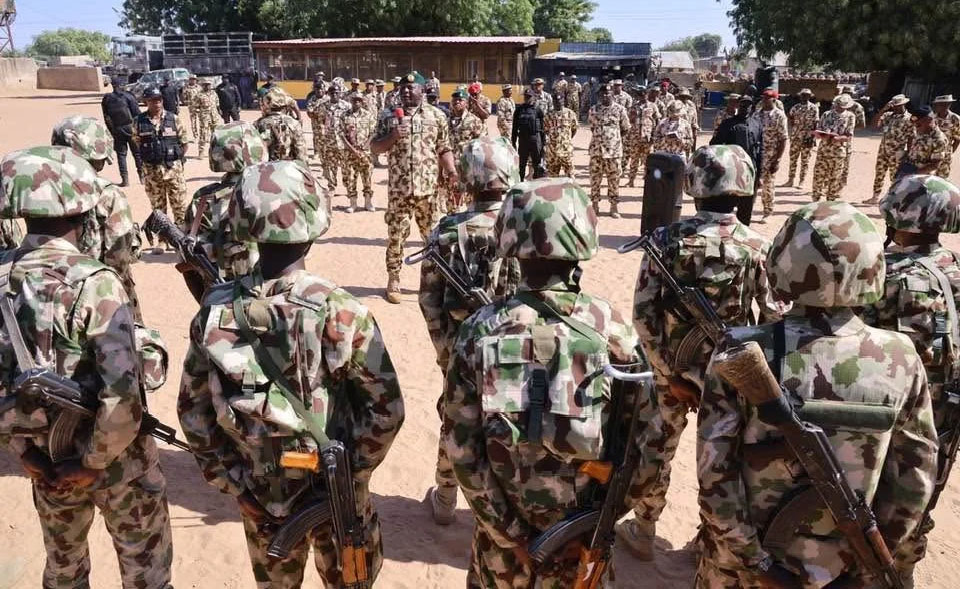
Falana, Jibrin, Bugaje Lead Opposition to US Military Presence in Nigeria
Some prominent Nigerians have condemned the reported US military presence in Nigeria, describing it as a violation of Nigeria’s sovereignty, a potential breach of the 1999 Constitution, and a dangerous precedent for foreign military interference in the country’s security affairs.
The criticism followed the arrival of United States military aircraft in Nigeria last week, shortly after American and Nigerian officials disclosed plans to deploy about 200 US soldiers in advisory and training roles. US officials said the aircraft movements would continue for several weeks as part of a temporary counterterrorism mission.
Nigeria’s Defence Headquarters (DHQ) has insisted that the US personnel are technical specialists, not combat troops, and that they will operate strictly under the authority and control of the Nigerian government, in coordination with the Armed Forces of Nigeria. The military stressed that the deployment does not amount to the establishment of a foreign base or independent US operations on Nigerian soil.
Despite these assurances, a coalition of lawyers, academics and civil society figures issued a joint statement titled “No to Foreign Forces in Our Land: Defend Our Sovereignty”, warning that the presence of foreign troops raises serious constitutional, legal and national security concerns.
The statement was signed by human rights lawyer Femi Falana (SAN), political scientist Jibrin Ibrahim, Dr Abubakar Siddique Mohammed, Dr Dauda Garuba, Prof Massaud Omar, Prof Mohammed Kuna, Engr YZ Ya’u, and political activist Usman Bugaje.
They recalled Nigeria’s long-standing resistance to foreign military domination, warning against what they described as a creeping neo-colonial security arrangement. According to the group, Nigeria’s independence was founded on firm opposition to external military control, a principle they said must not be compromised under any guise.
READ ALSO:
- Insurgents Acquire 35 Drones as ISWAP Shifts to Aerial Attacks
- Seven Killed in Horrific Crash at Ota Toll Gate
- Nigerian Equities Post World’s Second-Best Dollar Returns in 2026, Recover $21bn
The signatories referenced the Anglo-Nigerian Defence Pact of 1960, which was abrogated in 1962 following widespread public protests, arguing that political independence without military sovereignty is incomplete. They also cited Nigeria’s rejection of foreign pressure during the 1976 Organisation of African Unity (OAU) summit on Angola, recalling the historic declaration by Murtala Mohammed that Africa would no longer operate under the influence of extra-continental powers.
The group further highlighted past attempts to impose military cooperation agreements on Nigeria, including a proposed US–Nigeria defence pact in 2001 that was withdrawn after opposition from the Ministry of Defence, and the Bilateral Immunity Agreement (BIA) signed in 2003 and later nullified by the Senate in 2005 for violating constitutional provisions and the Rome Statute.
They cited Section 12(1) of the 1999 Constitution, which requires National Assembly approval before any international treaty can have the force of law in Nigeria, insisting that any foreign military deployment must follow due legislative process.
Rejecting claims that Nigeria lacks the capacity to defend itself, the group pointed to the strong peacekeeping record of the Nigerian Armed Forces under the United Nations, African Union, and ECOMOG missions in Liberia and Sierra Leone. They argued that Nigeria should prioritise modernising its military, strengthening intelligence coordination, improving troop welfare, investing in local defence production, and addressing the root causes of insecurity rather than outsourcing national defence.
In a separate interview, Prof Jibrin Ibrahim warned that Nigerians appear less vigilant today than in the 1960s, when public resistance forced the government to abandon foreign defence pacts. He questioned the effectiveness of US military interventions globally, arguing that such involvement often deepens insecurity rather than resolves it.
Observers say the controversy has reignited debate over how Nigeria should balance international security cooperation with the need to protect national sovereignty, constitutional order, and democratic accountability amid rising security challenges across the country.
Falana, Jibrin, Bugaje Lead Opposition to US Military Presence in Nigeria
News
Ramadan Begins in Nigeria as Sultan Confirms Crescent Sighting
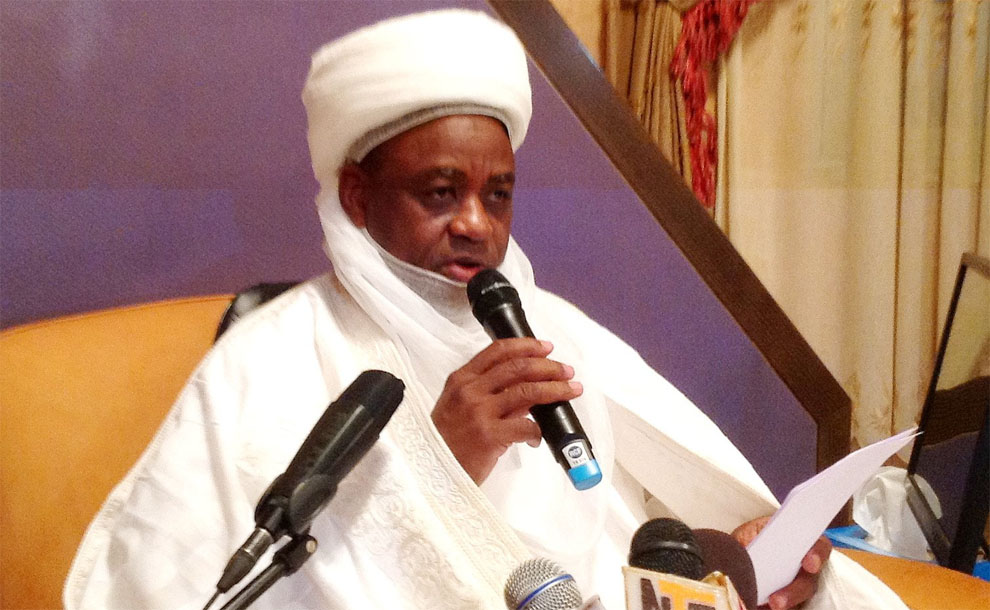
Ramadan Begins in Nigeria as Sultan Confirms Crescent Sighting
Abuja — The Sultanate Council on Tuesday night confirmed the sighting of the crescent moon, officially signaling the commencement of Ramadan 1447AH in Nigeria.
The President-General of the Nigerian Supreme Council for Islamic Affairs (NSCIA) and Sultan of Sokoto, Muhammad Sa’ad Abubakar III, announced that the new moon was sighted in parts of the country, thereby declaring Wednesday, February 18, 2026, as the first day of fasting for Muslims nationwide.
The announcement followed verified reports from moon-sighting committees across several states, in line with Islamic tradition which requires physical sighting of the crescent to mark the beginning of the ninth month of the Islamic lunar calendar.
In his message to the Muslim faithful, the Sultan urged Nigerians to use the holy month to pray for peace, unity, and national development. He also called on Muslims to embody the virtues of patience, compassion, charity, and self-discipline which Ramadan represents.
READ ALSO:
- Deadlock at National Assembly as House Snubs Electoral Act Bill Meeting on E-Transmission Clause
- Maikori Accuses Ex‑Governor El‑Rufai of Persecution Over 2017 Tweet
- Shari’ah Council Defends Kwankwaso, Rejects US “Christian Genocide” Claims
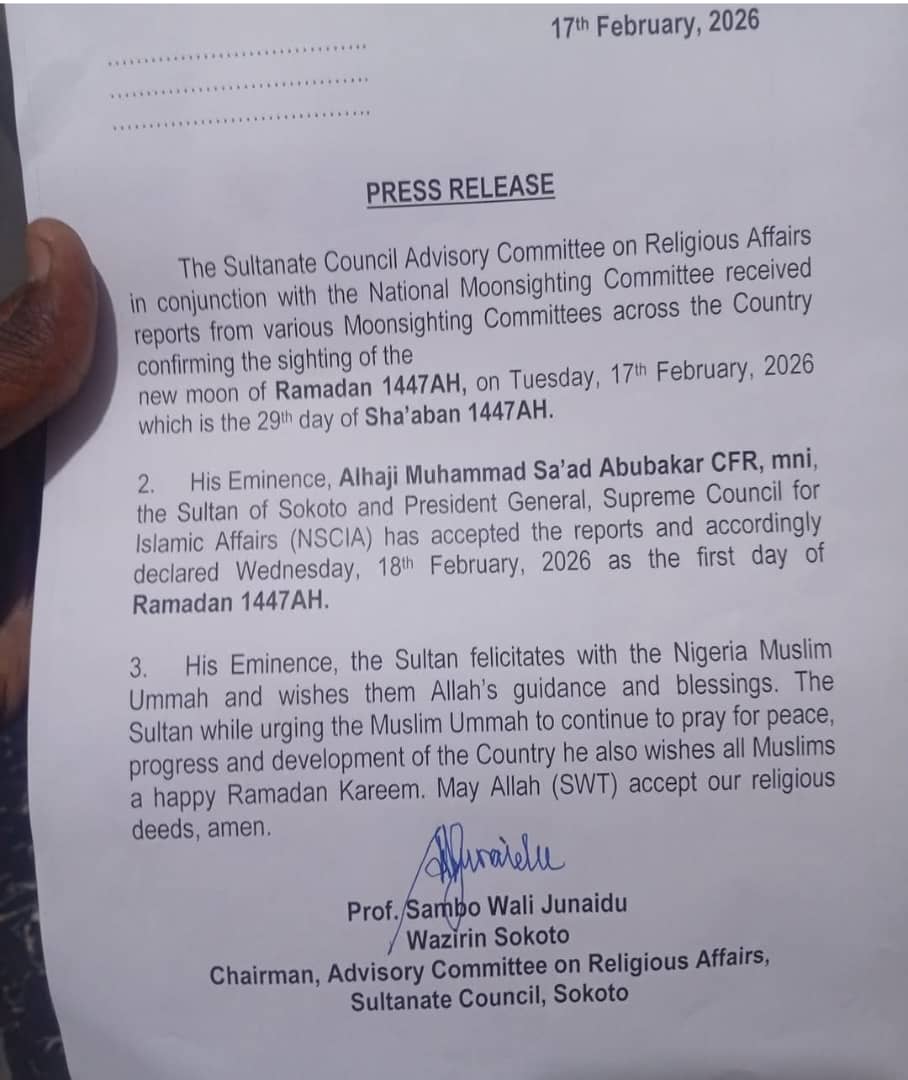 Ramadan, one of the five pillars of Islam, requires adult Muslims to abstain from food, drink, and other physical needs from dawn until sunset throughout the month. The period is also marked by increased devotion, nightly congregational prayers in mosques, recitation of the Qur’an, and acts of charity to the less privileged.
Ramadan, one of the five pillars of Islam, requires adult Muslims to abstain from food, drink, and other physical needs from dawn until sunset throughout the month. The period is also marked by increased devotion, nightly congregational prayers in mosques, recitation of the Qur’an, and acts of charity to the less privileged.
Across major cities including Abuja, Lagos, Kano, and Port Harcourt, mosques recorded increased attendance for special night prayers following the announcement. Markets also witnessed heightened activity as families made last-minute purchases in preparation for the fasting period.
Ramadan will last 29 or 30 days, depending on the sighting of the next crescent, and will culminate in the celebration of Eid al-Fitr, marking the end of the fasting month.
Muslim leaders have encouraged faithful to observe the fast in accordance with Islamic teachings while maintaining harmony and mutual respect within Nigeria’s diverse society.
Ramadan Begins in Nigeria as Sultan Confirms Crescent Sighting
News
Saudi Arabia Confirms Sighting of Ramadan Crescent, Fasting Begins Wednesday

Saudi Arabia Confirms Sighting of Ramadan Crescent, Fasting Begins Wednesday
Riyadh, February 17, 2026 — Authorities in Saudi Arabia have officially confirmed the sighting of the crescent moon marking the beginning of the holy month of Ramadan, signaling that fasting will commence on Wednesday, February 18, 2026.
The announcement was made Tuesday evening following reports from moon-sighting committees across the Kingdom. In a statement carried by state media, the Supreme Court confirmed that verified testimonies of the crescent’s sighting had been received after sunset on the 29th day of Sha’ban.
With the confirmation, Muslims throughout the Kingdom will begin the first fast of Ramadan at dawn on Wednesday.
READ ALSO:
- Deadlock at National Assembly as House Snubs Electoral Act Bill Meeting on E-Transmission Clause
- Maikori Accuses Ex‑Governor El‑Rufai of Persecution Over 2017 Tweet
- Shari’ah Council Defends Kwankwaso, Rejects US “Christian Genocide” Claims
Religious authorities had earlier called on citizens and residents to look for the crescent on Tuesday evening and report any confirmed sightings to the nearest court. Observations were conducted in various regions, including areas around Riyadh and Mecca, as part of the Kingdom’s longstanding tradition of physical moon sighting.
Ramadan, the ninth month of the Islamic lunar calendar, is observed by Muslims worldwide as a period of fasting, prayer, charity, and spiritual reflection. The start of the month is determined by the sighting of the new crescent moon, in accordance with Islamic tradition.
Several other countries in the Gulf region are also expected to begin fasting on Wednesday following similar confirmations, while some nations may rely on local moon sightings to determine their own start date.
Further announcements regarding the duration of nightly Taraweeh prayers and official Ramadan working hours are expected from relevant authorities in the coming days.
Saudi Arabia Confirms Sighting of Ramadan Crescent, Fasting Begins Wednesday
-

 News3 days ago
News3 days agoOsogbo Sons and Daughters Mark 5th Anniversary with Awards, Political Undertones
-

 News20 hours ago
News20 hours agoSaudi Arabia Confirms Sighting of Ramadan Crescent, Fasting Begins Wednesday
-

 metro2 days ago
metro2 days agoUS Freezes Assets of Eight Nigerians Over Boko Haram, ISIL, Cybercrime Links
-

 News15 hours ago
News15 hours agoRamadan Begins in Nigeria as Sultan Confirms Crescent Sighting
-

 metro17 hours ago
metro17 hours agoLagos Woman Shares Ordeal After Alleged Rape, Sparks Nationwide Outcry
-
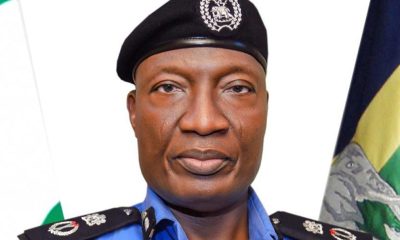
 Entertainment2 days ago
Entertainment2 days agoMystery in Lekki: Police Probe Death of Two Nollywood Crew Found Lifeless in Parked Car
-

 metro2 days ago
metro2 days agoTerror in Lagos Traffic: Cutlass Gang Unleashes Mayhem on Mile 12–Ketu Road
-
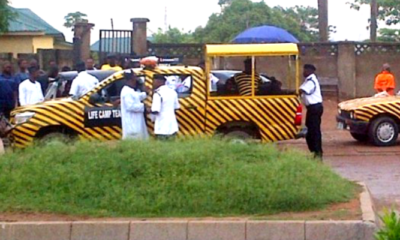
 Auto2 days ago
Auto2 days agoAppeal Court Ruling on VIO Limited to Abuja, Not Lagos — LASG





